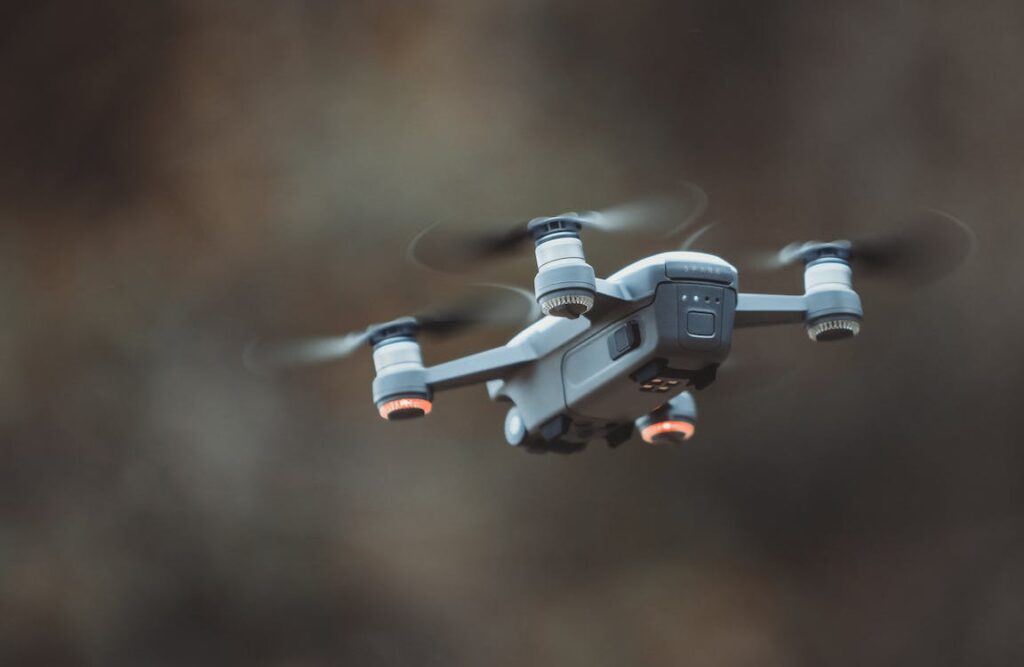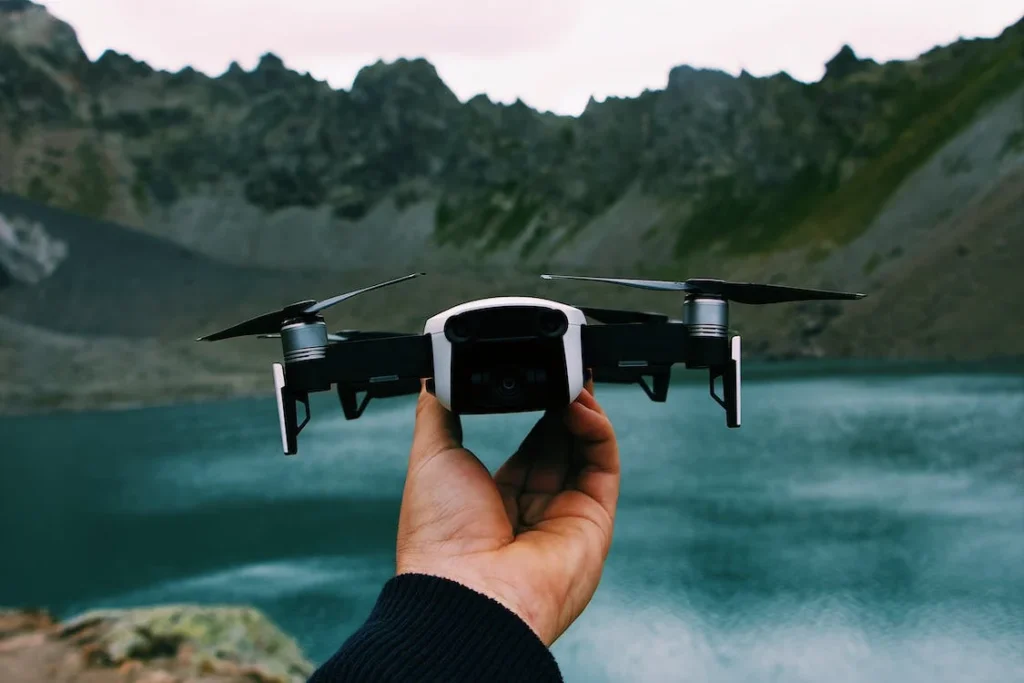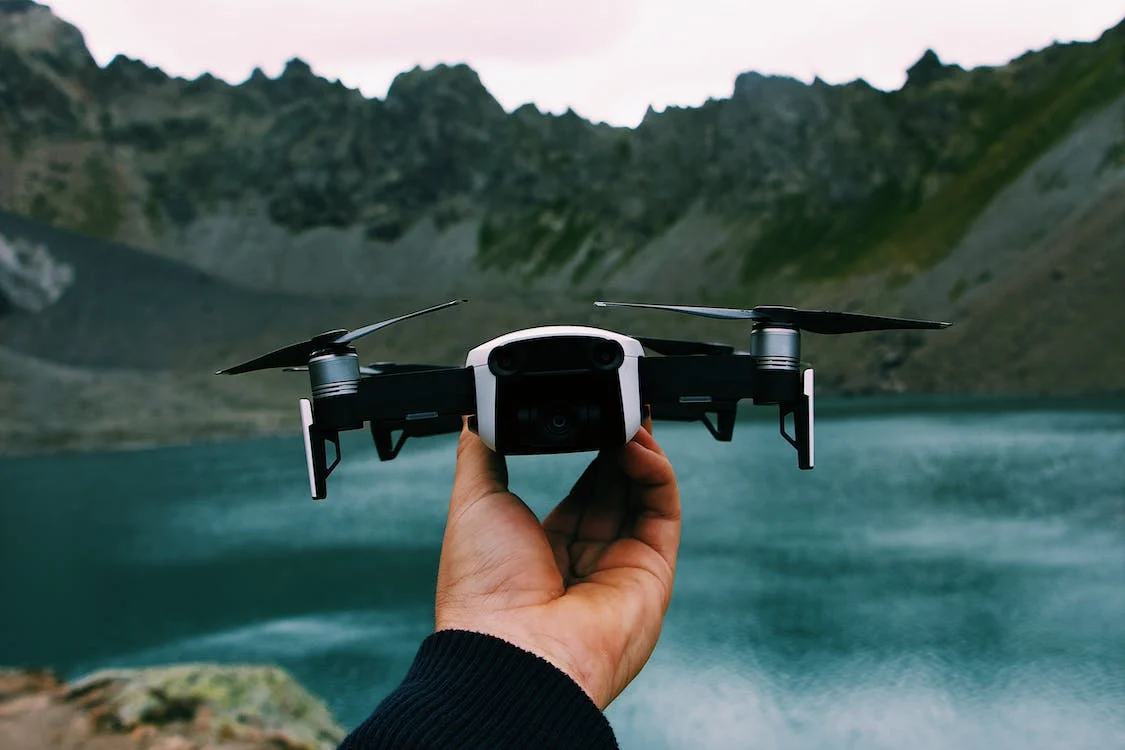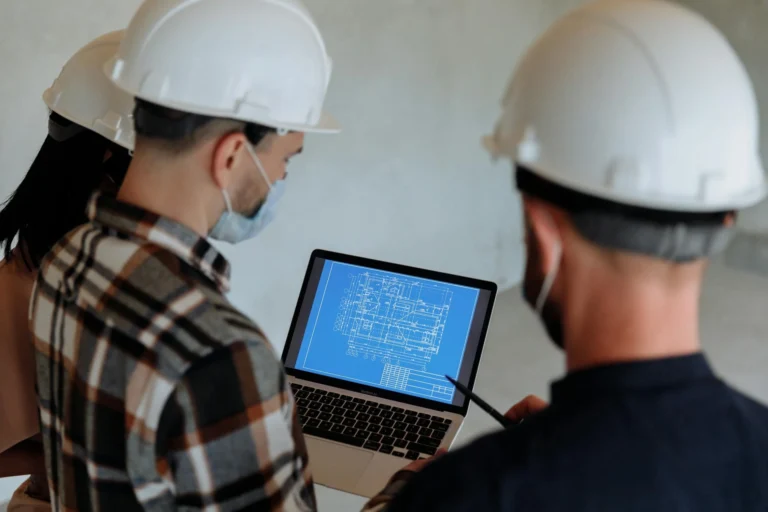The construction industry, often characterised by its reliance on traditional methods and manual labour, has experienced a significant technological revolution in recent years. One of the most transformative innovations is the integration of drones into construction site surveillance and project management. Drones, also known as Unmanned Aerial Vehicles (UAVs), are reshaping the industry by providing efficient, cost-effective, and data-rich solutions for site monitoring, progress tracking, and decision-making. In this blog, we will explore the myriad ways in which drone technology is elevating construction project management and site surveillance.

The Rise of Drones in Construction
Before delving into the specific applications of drones in construction, let’s understand why they have gained such prominence within the industry.
Efficiency and Speed
Drones can cover large areas quickly, capturing high-resolution images and videos in a fraction of the time it would take human inspectors or surveyors. This speed is invaluable in the fast-paced world of construction, where project timelines are often tight.
Safety
Construction sites are inherently hazardous environments, fraught with potential risks that can pose serious dangers to workers. These risks include working at heights, exposure to heavy machinery, and navigating uneven terrain, among others. Moreover, certain construction tasks may require employees to enter confined spaces or work in challenging weather conditions. In such situations, the safety and well-being of workers are paramount concerns.
By integrating drone technology into construction site operations, the industry can take significant strides in mitigating these risks. Drones serve as invaluable tools for conducting inspections and surveys, offering the advantage of not requiring human workers to physically access perilous or hard-to-reach areas. This, in turn, serves as a powerful risk reduction strategy, minimising the potential for accidents, injuries, and even fatalities on construction sites.
The implications are profound; the use of drones not only safeguards the workforce but also contributes to a safer and more responsible construction industry. It empowers construction companies to prioritise worker safety without compromising the efficiency and effectiveness of their projects.
Cost-Effectiveness
While the initial investment in drone technology may seem significant, the long-term cost savings are substantial. Drones reduce the need for manual labour, equipment, and resources required for traditional surveying and monitoring methods.
Data-Rich Insights
Drones equipped with advanced cameras and sensors provide rich data that can be processed to generate precise maps, 3D models, and detailed reports. This data is invaluable for project management, decision-making, and quality control.
Real-Time Monitoring
Drones offer the ability to monitor construction sites in real-time. This enables project managers to address issues promptly, make informed decisions, and maintain project schedules.
Applications of Drone Technology in Construction
Site Surveying and Mapping
Drones have emerged as indispensable tools for the construction industry due to their remarkable capabilities in conducting aerial surveys and creating detailed maps of construction sites. The utility of this technology extends far beyond mere convenience; it plays a pivotal role in enhancing project planning, execution, and overall efficiency. Aerial surveys facilitated by drones offer a comprehensive view of the construction site, allowing project managers and engineers to gain invaluable insights into the site’s topography. These insights extend to identifying potential challenges that may arise during the construction process, such as uneven terrain, geological variations, or environmental factors. Armed with this information, construction teams can formulate well-informed strategies and plans to navigate these challenges effectively.
Moreover, the benefits of drone-generated maps extend to the realm of precision and accuracy. Survey-grade drones, equipped with state-of-the-art sensors and imaging technology, have the capability to provide highly precise elevation data and generate intricate 3D models of the construction site. This level of precision is particularly crucial in large-scale construction projects where minute deviations can have significant repercussions. With such accurate data at their disposal, construction professionals can make informed decisions regarding site preparation, foundation design, and grading operations, ensuring that the construction process adheres to the highest standards of quality and precision. In essence, the integration of drones into construction site mapping and surveying is not merely a technological advancement; it represents a paradigm shift in how construction projects are conceived, planned, and executed, ushering in a new era of efficiency and precision in the industry.
Progress Tracking
Monitoring construction progress is crucial for staying on schedule and within budget. Drones can capture images and videos at regular intervals, creating a visual timeline of the project. This allows project managers to compare the actual progress to the planned schedule and make adjustments as needed.
Quality Control and Inspections
Drones equipped with high-resolution cameras and thermal imaging sensors can be used for quality control and inspections. They can identify defects, safety hazards, and discrepancies in construction work. Thermal imaging is especially valuable for detecting issues like insulation gaps or leaks.
Safety and Security
Drones can enhance safety and security on construction sites. They can patrol the site to ensure that safety protocols are followed, monitor access points, and provide real-time surveillance to prevent theft or vandalism.
Inventory Management
Drones can be used to track and manage construction materials and equipment. They can provide real-time information about inventory levels, helping project managers avoid delays due to material shortages.
Environmental Monitoring
Construction projects often have environmental impact assessments and regulations to adhere to. Drones can monitor environmental conditions and provide data on factors like erosion, vegetation, and wildlife activity, helping construction companies comply with environmental standards.
Communication and Stakeholder Engagement
Drones can capture stunning aerial views and progress updates that are useful for communicating with stakeholders, including investors, clients, and regulatory authorities. These visuals provide a clear overview of project status and can foster better communication.
Surveying for Infrastructure and Utilities
Drones are valuable for surveying and inspecting infrastructure and utilities, such as roads, bridges, pipelines, and power lines. They can access hard-to-reach areas and provide accurate data for maintenance and repair.

Real-World Applications of Drones in Construction
Skanska’s Use of Drones in Infrastructure Projects
Skanska, a global construction company, has integrated drones into various infrastructure projects. They use drones for site inspections, surveying, and progress tracking. In one project, they used drones to survey a bridge site, reducing the surveying time from two weeks to just two days. The data collected allowed them to identify potential issues and make informed decisions early in the project.
Bechtel’s Implementation of Drones for Safety
Bechtel, a major engineering and construction company, has implemented drones to enhance safety on construction sites. They use drones for safety inspections and to monitor adherence to safety protocols. Drones provide real-time surveillance, allowing for immediate intervention in case of safety violations or potential hazards.
Turner Construction’s Progress Tracking
Turner Construction, a prominent construction management firm, uses drones for progress tracking on their projects. They capture aerial images and videos regularly and compare them to construction plans to ensure that projects are on track. This real-time monitoring has improved project efficiency and reduced delays.
Overcoming Challenges and Considerations
While drones offer significant benefits to the construction industry, there are challenges and considerations to address:
Regulatory Compliance
The use of drones is subject to regulations and airspace restrictions. Construction companies must comply with local and national regulations and obtain the necessary permits to operate drones legally.
Data Management
The vast amount of data generated by drones requires effective management and analysis. Construction companies need robust data management systems to process, store, and extract actionable insights from drone-generated data.
Integration with Existing Systems
Integrating drone data with existing project management and Building Information Modeling (BIM) systems can be complex. Compatibility and interoperability issues may need to be addressed.
Data Security and Privacy
Data security and privacy are critical considerations, especially when drones capture images and videos of construction sites. Ensuring the protection of sensitive data is essential.
Skills and Training
Operating drones and analysing the data they produce require specialised skills. Construction companies must invest in training their personnel or hire trained drone operators.
The Future of Drones in Construction
The future of drones in construction looks promising, with several exciting developments on the horizon:
AI and Machine Learning Integration
Drones equipped with Artificial Intelligence (AI) and machine learning capabilities will be able to analyse data more intelligently. They will detect anomalies, predict potential issues, and offer recommendations for optimization.
Advanced Sensors and Payloads
As technology advances, drones will be equipped with increasingly sophisticated sensors and payloads. This includes LiDAR (Light Detection and Ranging) for detailed mapping and surveying, as well as multispectral cameras for more accurate environmental monitoring.
Automation and Autonomous Flight
Automation will play a significant role in the future of drones in construction. Drones will be capable of autonomous flight, pre-programmed to conduct routine inspections or capture progress updates without human intervention.
Enhanced Battery Life
Battery technology will improve, allowing drones to operate for longer durations on a single charge. This will extend their capabilities for larger construction sites or complex projects.
Augmented Reality (AR) Integration
Drones will likely be integrated with augmented reality technology, providing real-time overlays of project data on construction sites. This will assist workers and project managers in visualising plans and progress.
Drones have rapidly emerged as indispensable tools in the construction industry. Their ability to provide efficient, cost-effective, and data-rich solutions for site surveillance, progress tracking, and project management has revolutionised the way construction projects are executed. As technology continues to advance, drones will become even more sophisticated, offering advanced AI capabilities, enhanced sensors, and autonomous flight.
Construction companies that embrace drone technology gain a competitive edge by improving efficiency, safety, and decision-making. As regulatory frameworks evolve and industry standards for drone use are established, the integration of drones into construction practices will become increasingly widespread. Ultimately, drones are not just elevating construction projects; they are propelling the entire industry into a future characterised by greater precision, productivity, and sustainability.
A good construction software makes use of good project management functionality, estimate and financial/accounting tool functionality, job management, scheduling and planning and support functionalities and more. WunderBuild is a construction management software that aims to provide all of these functionalities and more to bring out the best outcomes for a project. Enquire here today, to learn more about Wunderbuild and start your free trial.




